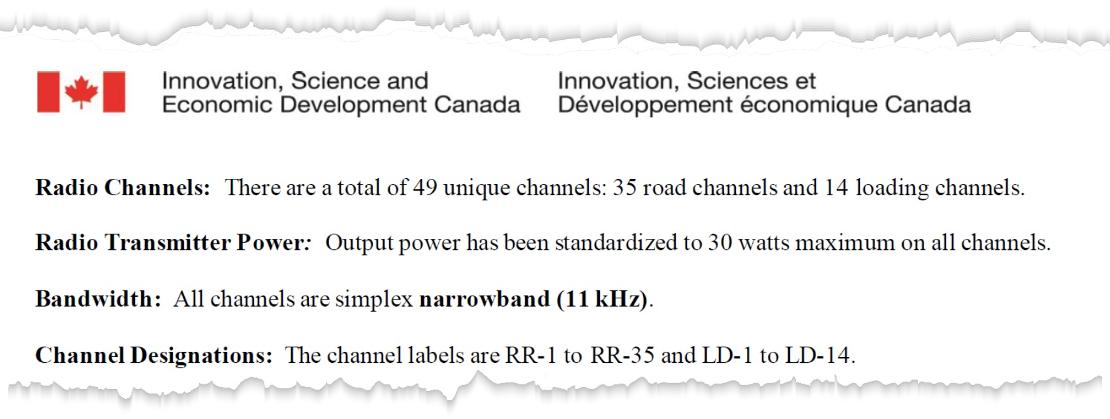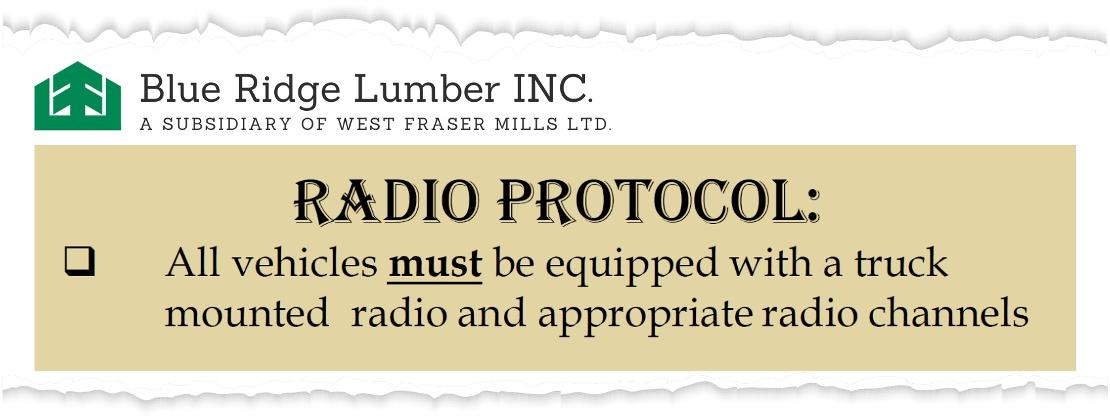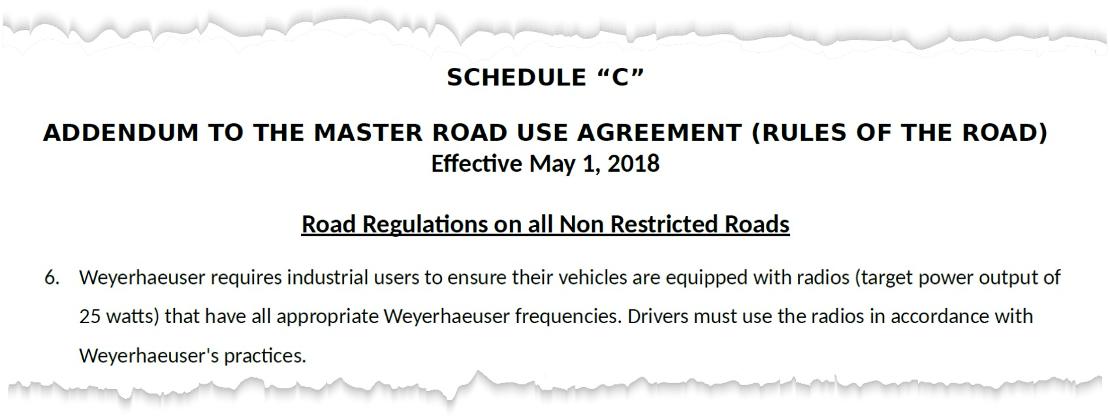Radio Licensing
To operate a two-way radio system in Canada, you need a valid radio license issued by ISED. This license is necessary to ensure that your radio system complies with the technical and safety standards set by the regulatory body (ISED). Failure to obtain the appropriate license may result in fines, legal liability, and disrupted operations.
Continue reading to learn more; browse our shop, send us a message or give us a call for a chat about your needs.

NOTICE: All Two Way Radios In Canada Must Be Licenced - ISED
Innovation, Science and Economic Development Canada - Spectrum Management (ISED) is responsible for fostering the orderly development and operation of two way radio communications through the management of the radio frequency spectrum.
Download the ISED information to read the full notice to radio equipment suppliers and radiocommunication users, or access ISED's website.
Procedures for Two Way Radio Licensing in Canada
ISED Contact
Determine the type of radio system you need
You need to determine the type of radio system you need based on your communication requirements. There are various types of radio systems available, such as Private Mobile Radio (PMR), Land Mobile Radio (LMR), Multipoint Communication System (MCS), Wireless Local Loop Systems and General Mobile Radio Service (GMRS), among others.
Determine the licensing category
The type of radio system you intend to operate will determine the licensing category you need. Licensing categories include Basic, Advanced, and Amateur, among others. Basic licenses are suitable for low-power devices used for personal communication, while Advanced licenses are required for high-power radio systems used for commercial or industrial purposes.
Apply for your two way radio license
You can apply for a radio license online through the Industry Canada Spectrum Management System (SMS) or by filling out a paper application. You will need to provide detailed information about your radio system, such as the frequency, power output, and location, among others.
Pay the license fee
You will need to pay the applicable license fee, which varies depending on the licensing category and the duration of the license. Fees for radio licences are set out in the Radiocommunication Regulations. The applicable fee is determined by the type of station licensed and the type of service used. In certain cases, the amount of radio frequency spectrum required or the number of frequencies assigned and the location of operations are also taken into account.
Wait for processing
After submitting your application and paying the fee, you will need to wait for processing. The processing time varies depending on the licensing category and the complexity of your radio system. Note: Licence fees must be paid in full before the radio licence can be issued. Once issued, the licence is valid until its expiry date which, for all but short-term licences, is March 31. No portion of the licence fee is refundable.
Receive your license
Once your license is approved, you will receive it via email or mail. The license will contain all the necessary information about your radio system, including the frequency band, power output, and geographical area of operation, among others.
It's important to note that obtaining a radio license in Canada can be a complex process, especially for commercial or industrial radio systems. It's recommended to seek the advice of a qualified radio expert to help you navigate the licensing process and ensure compliance with Industry Canada's regulatory standards. If you're ever unsure about the process, reach out to ISED directly.
Helpful Terminologies, References and Resources
ISED - Innovation, Science and Economic Development Canada
The federal institution that leads the Innovation, Science and Economic Development portfolio. Within ISED, there are several branches responsible for specific areas of focus, such as the Spectrum Management and Telecommunications sector, which oversees the regulation of radio frequency spectrum and telecommunications services, and the Strategic Policy sector, which develops policies and programs related to innovation and economic growth.
"Spectrum management and telecommunications"
Provides access to the radiofrequency spectrum by issuing authorities for its use, minimizing interference, securing Canada's access to it through international negotiations and by ensuring its safe and efficient use.
Radiocommunication Act
An Act respecting radiocommunication in Canada. The Radiocommunication Act is a federal law in Canada that governs the use of radio communication devices and radio frequency spectrum. The Act sets out the framework for the regulation and management of radio communication in Canada, including the allocation and assignment of radio frequency spectrum, the licensing of radio communication equipment and services, and the establishment of technical and safety standards for radio systems.
Radiocommunication Regulations
Regulations respecting radiocommunication, radio authorizations, exemptions from authorizations and the operation of radio apparatus, radio-sensitive equipment and interference-causing equipment.
Types of Two Way Radios in Canada and Their Licensing Requirements
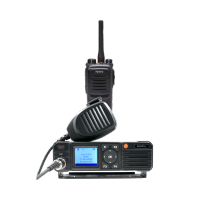
Traditional Two Way Radios
Also called Land Mobile Radios (LMR) or Professional Mobile Radios (PMR) with UHF and VHF frequency bands at max 50 watts. These come in portable/handheld and mobile/vehicle models. They also include Intrinsically Safe models.
License Required - Users MUST obtain licenses for specified frequencies, which are then programmed into your radio.
Programming required
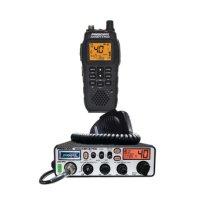
CB Radios
Citizen Band (CB) radios are a type of short-distance that operate on AM, FM and SSB frequency bands at max 3 watts output. CB radios are popular with truckers. CB radios also come in portable/handheld and mobile/vehicle models.
License NOT Required - Radios in this category are licensed to operate on up to 40 pre-programmed channels.
Programming NOT needed
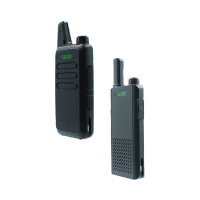
GMRS Radios
GMRS (General Mobile Radio Service) radios are pre-configured for immediate use and operate on FM bands. Popular among recreational and retail users, GMRS radios operate at 2 watts max power output. They are user-friendly and typically come in handheld models.
License NOT Required - Radios in this category allow up to 22 channels, which are shared with FRS radios.
Programming NOT needed
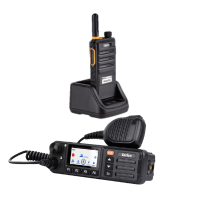
PoC Radios
Push-to-talk over Cellular (PoC) radios enable nationwide connections due to their ability to operate with cellular networks, giving them rich methods of voice, text and data transmissions. PoC radios are great for all industries.
License NOT Required - However some setup is required. All you need is a cellular connection (SIM card) or Wi-Fi, and a PTT App installed.
Programming NOT needed

